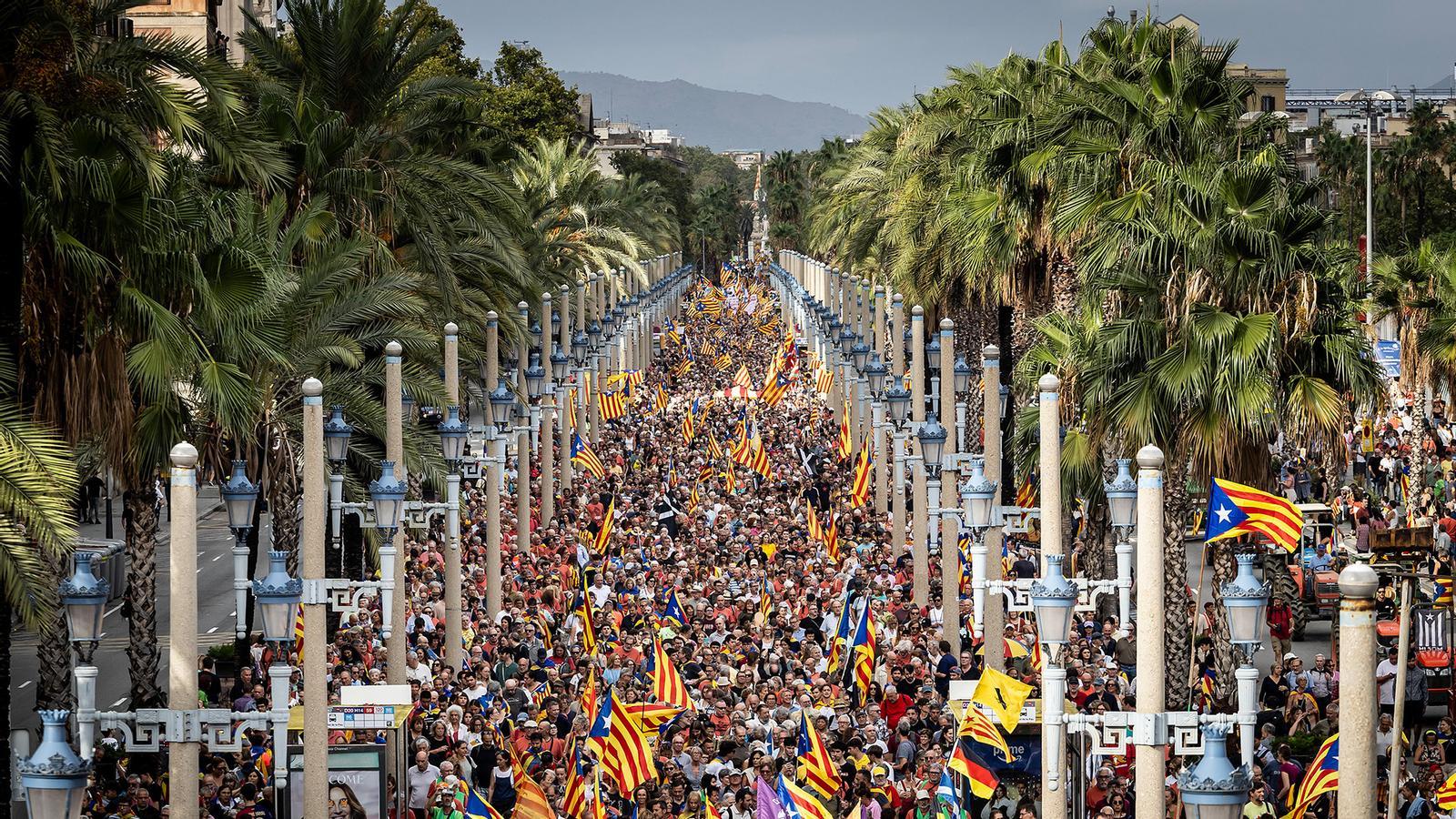Antoni Bassas' analysis: 'The nation is alive'
It is worth highlighting that, despite what Lluís Llach defined as "absolute depression", more than 40,000 people came out in several capitals of the country to demonstrate peacefully for independence, in a show of coherence and persistence in the idea more than in the instruments.


If the Diada is measured in thousands of protesters, theToday's independence movement cannot compete with that of ten years ago, but we already knew that.Those million-dollar Diadas belong to the past and won't return for a good while yet. Just remember which party currently represents the president of the Generalitat. Therefore, the number of people who took to the streets is directly proportional to the confidence they have in the strategies and leadership of Esquerra (Republic of Catalonia), Junts (Junts), and the CUP (with the deterrent influence of the rain, which in Barcelona this morning took the form of a downpour). Underlying this attitude is an indisputable reasoning: if when two million people came out to fill the entire Gran Via and Diagonal, all that accumulated strength didn't serve to make the struggle in Spain more likely to succeed, going out today or not going out won't make a difference. But, I insist, we already knew this.
And that's why we must appreciate the fact that, despite what Lluís Llach defined as "absolute depression," more than 40,000 people (or however many there were, because official counters always have their own agenda, like polls) came out in several of the country's capitals to peacefully demonstrate for independence, in a show of coherence and for independence. And, by the way, if we emphasize the mobilizing power of the independence movement, let's ask ourselves how many political projects today can produce an image like this.
Few people compared to the past, yes, but just a few, no, but thousands of protesters ready to show their convictions, described thus by Joan Burdeus in a chronicle that I recommend to you:
"The presence of Palestinian flags is negligible (there are more ikurriñes) and, despite the more or less interested coverage they will inevitably receive from the media, from within the demonstration the presence of the Catalan Alliance is practically irrelevant. With chants like "TV3 manipulator" and "Out with Spaniards and Muslims" (the second Spanish one), Sílvia Orriols's team manages to attract attention because they are a novelty, but the spectacle is more forced than worrying and the thing ends with indifference and tribuneism without any kind of anguish [...] It is a quiet reserve of believers without any expectations that limits itself to remembering that, waiting in the bushes, there are still people from the country.
It was even a clean Diada:
In the morning, the message was about the trial that defines Isla's government, and in the afternoon, it was about disobedience against the ruling by the Catalan Supreme Court of Justice (TSJC), which defended Lluís Llach in his role as president of the ANC.
The 2025 Diada review: the independence movement remains a structural element of Catalan political and social life, capable of maintaining common interests with the autonomist Catalan movement, such as the defense of the language. If anything, the new development is the presence of the Islamophobic far-right Catalan Alliance, which, unfortunately, is in line with what we're seeing across Europe, and from which we haven't escaped. This will continue to be the case because in Spain the dominant political culture is the same as it was centuries ago.:
The nation is alive. This was clear yesterday, morning, and evening.
Good morning.
